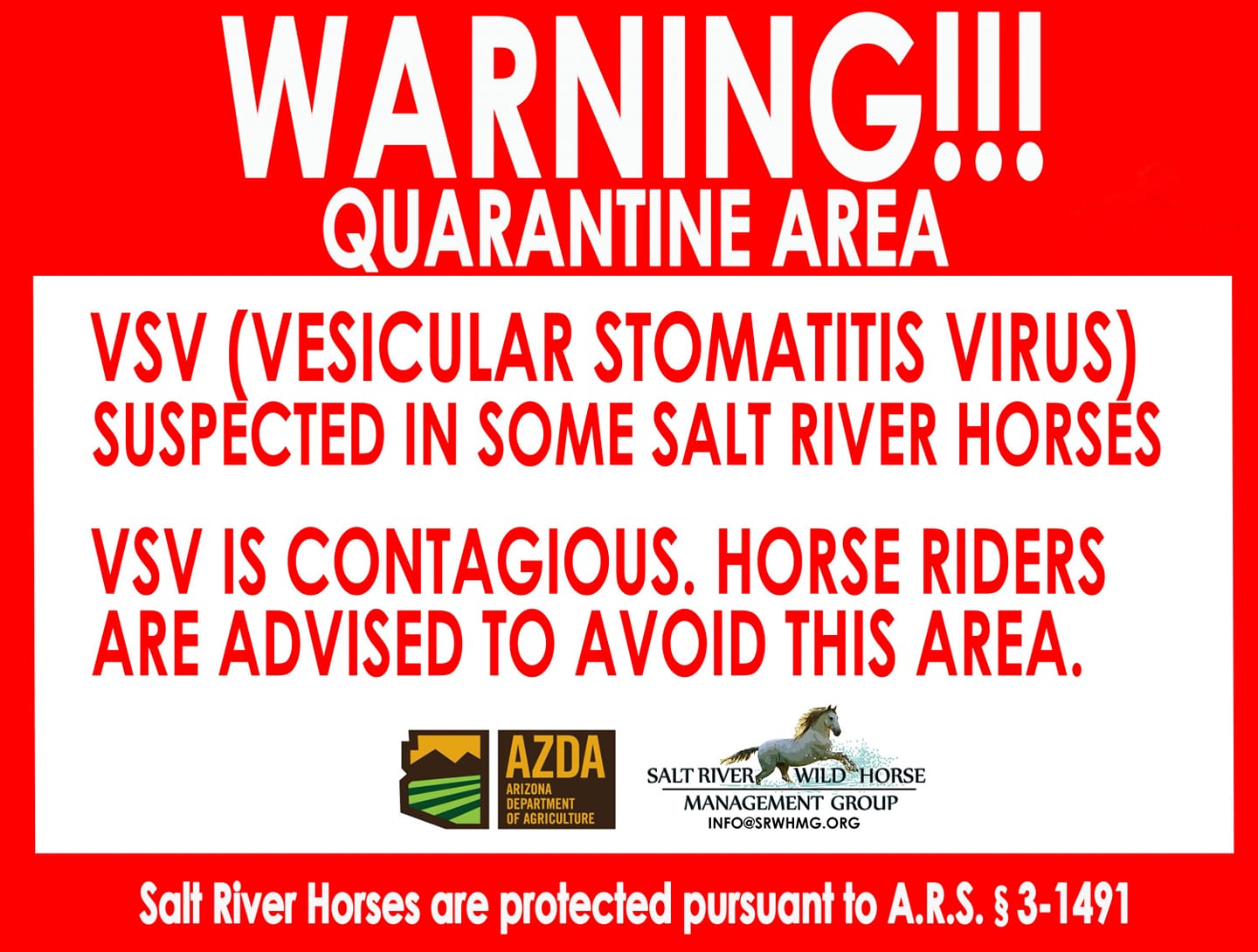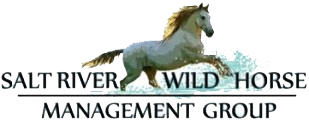
Signs Posted!
These are the signs we have posted at all main entrances to the Forest. Horse riders please beware. We have already discovered 4 more suspected cases. Please share with your horse back riding groups and friends.

This is the press release from the AZDA:
NOTICE : Suspected VSV in Salt River Horse Herd
PHOENIX, Ariz. – The Arizona Department of Agriculture has identified four Salt River horses in the Bulldog and Goldfield areas of the Salt River which have lesions consistent with Vesicular Stomatitis Virus (VSV). While these horses are suspected to have VSV, it has not been confirmed by testing. Out of an abundance of caution, all Salt River Horses in this area are currently under a quarantine. The animals are being monitored and the premises will remain under state quarantine until 14 days from the onset of lesions in the last affected animal on the premises.
Known competent vectors for transmission of VSV include black flies, sand flies, and biting midges (Culicoides spp.). The epidemiological investigation on the VSV-positive premises indicates that incursion of VSV-infected insect vectors is the likely source of infection on this premises. However, VSV is a highly infectious disease affecting upwards of 90% of susceptible animals in a given population and the incubation period from the time of infection to the onset of clinical signs is about 3-9 days. Once an animal becomes infected with Vesicular Stomatitis, transmission is no longer dependent on biting flies but can occur through direct contact with nasal secretions and saliva / vesicular fluid either from animal to animal or via contamination of fomites such as common feeders, water buckets, balling guns, tack, halters, bridles and bits.
Vesicular Stomatitis causes blister-like sores on the mouths, noses and sometimes feet of infected animals. The blisters are most likely to affect the mouth, the tongue and around the nose/muzzle yet can affect the coronary band above the hoof as well.
“Vesicular Stomatitis Virus mainly affects equine and to a lesser extent cattle and swine,” said State Veterinarian Dr. Peter Mundschenk “It can be painful for animals and costly to deal with.”
Veterinarians and livestock owners who suspect an animal may have Vesicular Stomatitis or any other vesicular disease should immediately contact the State Veterinarian. Livestock with clinical signs of Vesicular Stomatitis are isolated until they are healed and determined to be of no further threat for disease spread. There are no USDA approved vaccines for
Vesicular Stomatitis.
Though very unusual, people can be infected with the virus. In these situations, it is usually among those who handle infected animals (for example while inspecting a horse’s mouth and the horse coughs in the person’s face thereby delivering a large dose of virus onto the person’s eyes and lips). Vesicular Stomatitis Virus can cause flu-like symptoms and only rarely includes lesions or blisters in people.
It is recommended that all visitors to the Salt River stay at least 50 feet away from all Salt River horses and horseback riding in this area should not occur until the quarantine is released.
More information about Vesicular Stomatitis is available online. If you suspect VSV in your animals please contact your veterinarian or report to diseasereporting@azda.gov .
